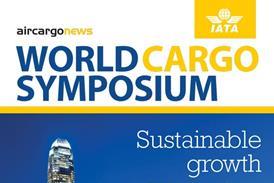A week after the EU Referendum result, the Freight Transport Association has identified the top ten crunch issues for British logistics as the country prepares to leave the European Single Market.
These will be the issues that FTA will be closely monitoring and influencing over the coming months to protect the interests of its members and keep British logistics and supply chains safe, efficient and sustainable.
This is FTA’s ABC guide to the Brexit issues for logistics:
A is for Access to the Single Market: This is the £360 billion question – the value of Britain’s trade with the EU. What will the new trade deal look like? Will we be the next Norway, or Canada? Or Turkey or Albania? This is the heart of what the next Prime Minister will need to negotiate with the EU. What’s the deal?
B is for Border Controls: Will they remain juxtaposed in Calais where security for truck drivers can be maximised or will they be repatriated back to Kent and migrants able to leave France unimpeded? There were calls for Britain to (literally) ‘take back control of its borders’ immediately after the result was declared, but these seem to have been dismissed by the French President … for now.
C is for Customs arrangements: What will be the tariffs, the guarantees and the clearance procedures exporters and importers will need to follow? These will decide how well the new trade works in practice for supply chain managers and shippers.
D is for Domestic legislation: The Government will need to unpick the enormous body of UK transport legislation that is based in EU directives and regulations. What will be kept, what will be scrapped? And do international hauliers have to learn two set of rules, one for when their trucks are in the UK and another for when they are in the EU?
E is for Enforcement of cross border traffic: We must avoid the queues of traffic waiting for Customs and enforcement checks to be carried out that are common at other border crossing points into the EU, otherwise Operation Stack will become a permanent feature of life in Kent. So getting clarity on what documentation for the goods, certificates for the trucks and licences for the driver are required are crucial details in making the new trade deal work in practice.
F is for Fuel Duty: The Chancellor has hinted at tax increases in the Autumn Statement to balance the national books following the Brexit decision. Fuel duty increases have been in his sights before, but FTA sponsored research shows that reducing fuel duty would give a real stimulus to the economy and would give logistics a competitive edge in a tough new trading environment.
G is for Global Markets: Much has been said about the country’s need to trade more with the rest of the world but changes in the container shipping market mean that the biggest and most efficient container ships are calling less frequently at UK ports, meaning goods having to be trans-shipped from the Continent. We need more investment in our ports and the road and rail links that connect them to increase their ability to handle bigger ships and larger volumes of containers.
H is for Heathrow … now! If Britain is out of Europe then it needs a world-class global air freight hub to connect businesses with their customers and suppliers in global markets. The Government needs to confront the decision on airport capacity in the harsh reality of the Brexit decision and keep Britain connected with the rest of the world by expanding Heathrow as the country’s global air cargo hub airport.
I is for Ireland: There are unique logistics issues affecting trade with the only EU country that shares a land border with the UK. In addition, Irish traffic to and from the Continent will need special arrangements to avoid the burdens of goods and vehicles exiting and re-entering the EU as they transit through the UK.
J is for Join FTA as we Leave the EU: Virtually every logistics business and supply chain manager is going to be affected by Brexit and keeping in touch with developments, telling members what’s going on and influencing the outcome of the negotiations is FTA’s top priority going forward. Joining FTA is the best move to make as the country prepares to leave the European Union.




